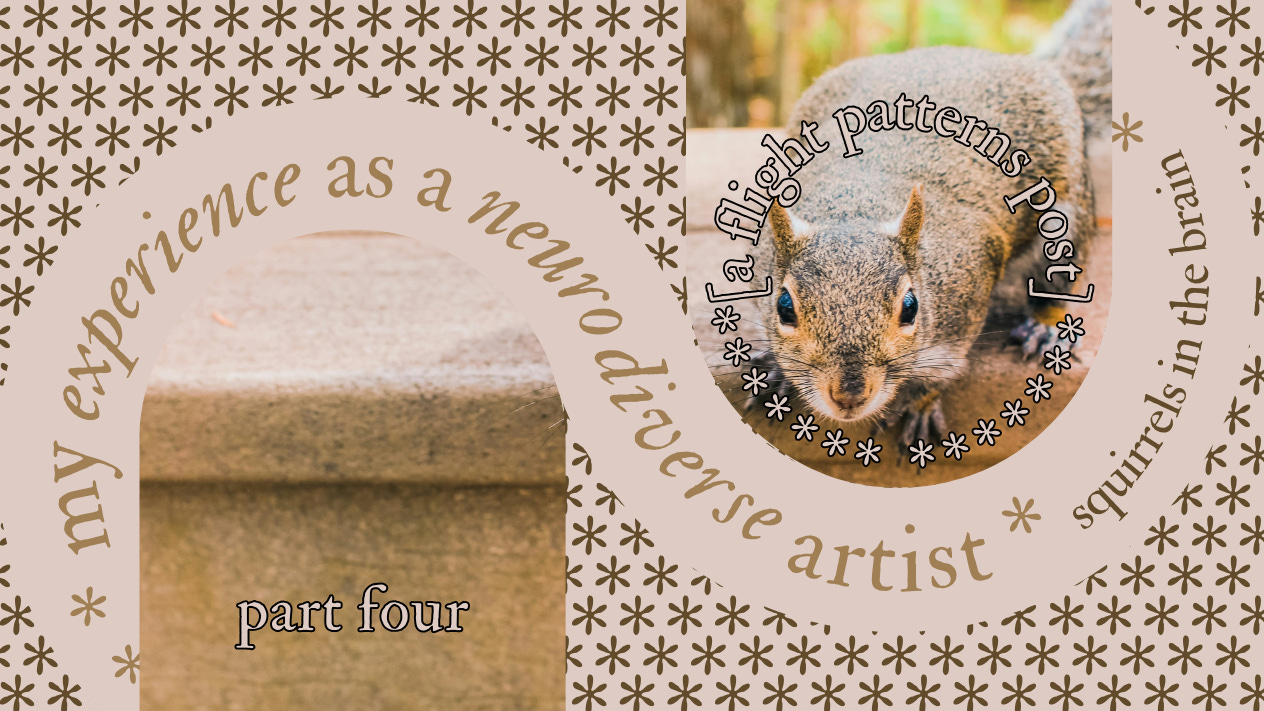Squirrel Disease. That’s what one of my ADHD friends calls his ADHD. And he’s not wrong. This is the fourth post in my series where I discuss my personal experience with neurodivergence. I’ve discussed disorganization, forgetfulness, social awkwardness, the search for a magic fix, getting a diagnosis, and handling other people’s ideas about me.
Today, we’re back to the quote from Keath Low, MA, ADHD specialist.
“A female with ADHD… may have great difficulty keeping her focus on tasks, becoming side-tracked and easily distracted by things around her or even by her own thoughts. It may take her a little longer to process information, so that she appears "slow" or "spacey" or "flighty", when in fact she may be highly intelligent.”
-focusing on tasks
I literally have a browser tab open called “500+ Squirrel Pictures.” Focus is not my strong suit – well, focusing on what I’m supposed to focus on is not my strong suit. For example, I can hyperfocus on drawing or writing or something I’m interested in for hours. But when I try to do a simple homework assignment, I’ll interrupt myself 3-4 times to do other things.
I have a few ways of dealing with this.
-Caffeine placates the mental squirrels and helps me focus.
-Doodling or crocheting during sermons or lectures keeps them occupied.
-My sermon notes often have a list of “ideas to think about later.” When I put the thought down on paper, it soothes the itch in my brain.
-A specific, simple task, like “make a cup of tea” or “start your laundry” or “walk to the end of the street and back” makes a good mental break from a boring or difficult assignment. My brain gets a rest from thinking about anything, there’s a clear endpoint to my break, and the drink, food or exercise makes me feel better.
-information processing
The average response time in a conversation is 3-5 seconds, according to physicsforum.com. Which is remarkable, given all the steps and signals used in a basic social exchange.
There have been times, even in my own family, where I hear every word you said, yet I’m not understanding the meaning. It’s similar to being spoken to in a different language. Sometimes it takes me several seconds for the meaning to click. Other times, it doesn’t click at all, and I need the sentence to be reworded.
If the information is orderly and clear, I can process it very fast, especially if I know your main point. If it’s jumbled, I have to mentally or even physically rearrange it (using writing, hand motions or verbally rewording your sentence.) This is one of the reasons design and formatting is so important to me, because they aid in clear and direct communication.
Especially recently, as I’ve been in college, information processing has become noticeably harder. I’ve had to decide what is important information and what is not. Some professors mistake my confusion for not paying attention, and I’ve had to learn how to ask them to rephrase the question.
I could recite to you an encyclopedia’s worth of facts and struggle with a simple cookie recipe. This disparity often makes me feel like a “fake” adult and sometimes is a cause of frustration.
Things like my stress levels, how much sleep I’ve gotten, whether I’ve eaten recently, and how overstimulated I am play a large part in how smoothly I can process information.
In conclusion, focus is hard. Information processing can take longer, and that can be difficult. However, I have yet to see the day when a squirrel couldn’t distract me from a problem and make me smile.




